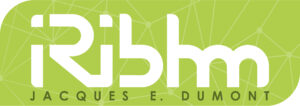PhD students
IRIBHM International PhD programme 2024. Call is closed !
To apply: https://iribhmphd.ulb.be
IRIBHM is a research institute of the Faculty of Medicine of the Université Libre de Bruxelles (ULB). The institute offers an internationally renowned research environment in molecular biology and life sciences, dealing with various topics that span receptor pharmacology and the discovery of new therapeutic targets to early embryonic development, stem cells, organoids and cancer. The Institute has trained a number of talented young scientists at both graduate and postdoctoral levels over the years.
To expand internationally and further enhance its level of excellence, IRIBHM (https://iribhm.org/) is launching its international PhD programme to prepare future leaders in biomedical sciences. Several PhD fellowships are available. The successful candidates will have the opportunity to work in a warm and stimulating research environment, guided by the highest international standards.
As the hub of the European Union, Brussels is an ideal location for an international PhD programme. In addition, the city shows an active cultural life and is hosting most nationalities from around the world.
We look forward to welcoming you in Brussels!
Requirements:
- Diplomas and degrees equivalent to a European Union Master’s degree, which includes project work summarized in a written “small thesis”
- Two referees willing to provide letter of recommendations
- Excellent knowledge of English
- Excellent interpersonal and organisational skills
Closing date for CV and letters submission: June 18th 2024.
Accepted candidates may start research projects as early as November 2024
Visit our website http://iribhmphd.ulb.be for more details and CV submission.
Postdoc
Sabine Costagliola Lab: Postdoc position in organoids research for modeling rare diseases
The Costagliola lab, at IRIBHM, ULB, Brussels, (https://costalab.ulb.ac.be/ ; https://iribhm.org/) is seeking a creative, motivated and highly independent postdoctoral fellow with a good expertise in Human stem cell-derived organoids. The project aims to uncover the molecular pathways responsible for resistance to Thyrotropin, a rare human disorder initiated by a newly identified genetic variation unique to primates.
This position is fully funded for 3 years. Salary commensurate with experience.
Project Background
The thyroid gland’s primary role is to capture iodide and synthesize Thyroid hormones (TH), crucial for normal growth and metabolism, which exert effects on nearly all tissues. Resistance to Thyroid-Stimulating Hormone (RTSH) denotes a syndrome where the thyroid displays variable hypersensitivity to biologically active TSH, a hormone from the pituitary gland. This condition is characterized by elevated serum TSH levels, a normal or underdeveloped thyroid, and varying serum TH levels, dependent on the degree of TSH insensitivity. RTSH is categorized as fully compensated, partially compensated, or uncompensated based on TH levels, with the latter indicating hypothyroidism due to low TH production. While loss-of-function mutations in the TSH receptor are a common cause of RTSH, an identical phenotype has been observed without such mutations, suggesting alternative genetic factors. In some patients, dominantly inherited RTSH has been linked to mutations in a Short Tandem Repeat (STR) in several families with RTSH (Grasberger, H. et al, Nat Genet (2024). https://doi.org/10.1038/s41588-024-01717-7). Our proposed project aims to utilize human thyroid organoids as a model for RTSH. Based on our expertise in generating functional human thyroid organoids from pluripotent stem cells (Antonica et al, Nature 2012; Romitti et al, Nat. Commun, 2022) and genome editing of stem cell lines, we will conduct functional assays, transcriptome and chromatin accessibility analyses in both wild-type and mutated organoids. This approach will enable us to elucidate the underlying molecular mechanisms contributing to RTSH. Interestingly, this STR is exclusive to primates, prompting an additional aspect of the project to explore its role in evolutionary endocrinology.
Postdoc benefits
As a postdoctoral researcher in our team, you will benefit from cutting-edge imaging and cell biology facilities and collaborate closely with experts in organoid technology. You will engage in a multidisciplinary project encompassing organoids, gene editing, imaging and transcriptomics, addressing significant questions in the fields of thyroid biology and evolutionary endocrinology. Candidates should demonstrate a track record of research productivity through publications.
Key tasks and responsibilities:
- Implement new models of Thyroid organoids.
- Generate genetically modified/edited human stem cells lines.
- Conduct single-cell RNA sequencing and transcriptomic analysis.
Qualifications in several of the following areas:
- PhD in Biology, Bioengineering or a related field.
- Proficiency in Human and/or mouse stem cell-derived organoids
- Experience in CRISPR-based genome editing.
- Experience in Confocal microscopy and image processing
- Experience in Bioinformatic for transcriptome analysis
- Developmental biology
This project is ideal for an ambitious and enthusiastic candidate who thrives in a dynamic environment. Proficiency in scientific English—speaking, reading, and writing—is essential.
To complete your application, kindly provide a cover letter detailing your research interests and career aspirations, along with an updated CV and the contact details of three references.
Contact: Sabine Costagliola sabine.costagliola@ulb.be
Lab Technician






